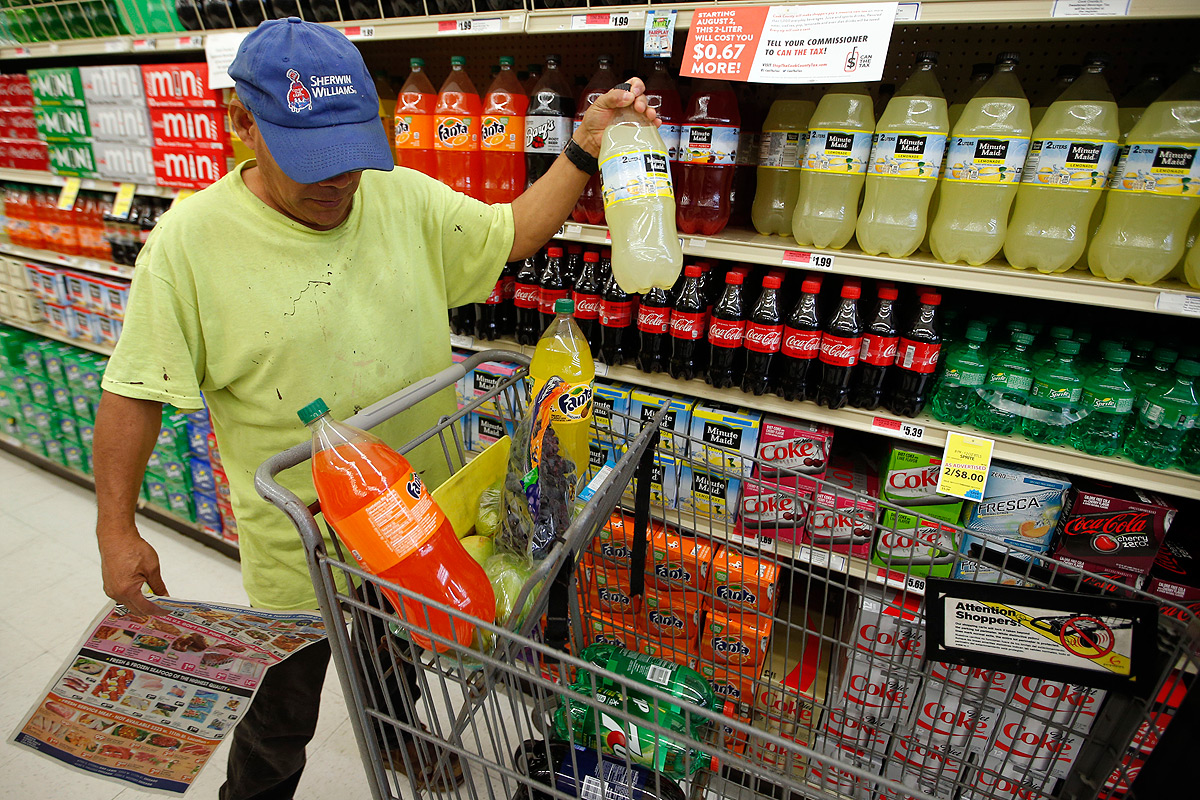The Center for Tax and Budget Accountability has a good explainer on the tangle Cook County is in now that the sweetened-beverage tax has been killed, eliminating $200 million in expected revenue.
The overall point is very simple: Like the state budget has been for so long, Cook County's revenue has been stagnant as expenses have climbed, and there's not enough money for the existing level of services.
What's worse is something The Daily Line's A.D. Quig flagged recently: Under current trends, the number of county retirees will surpass the number of employees by 2019, and by 2022 the number of retirees will be about 5,000 more than the number of employees. That's about 25,000 retirees versus about 20,000 employees. The number of employees will have shrunk by more than 5,000 since 2000, while the number of retirees will have more than doubled in that time. In short, the county will be paying more people for past work than current work. (There's more here for Daily Line subscribers.) It's a similar trend to what's helped push down the funding level of Chicago teacher pensions.
The CTBA analysis highlights something that's worth noting in why Toni Preckwinkle floated the beverage tax. The county's property tax levy has stayed the same since 1996, which Preckwinkle called "a matter of pride" for her predecessor, the late John Stroger, back in 2011, and "something his successors have committed to." So it's not adjusted for inflation; by the CTBA's analysis, that's cut 36 percent from its real value in 20 years, and 36 percent of $720 million is… $259 million.
There's another Cook County tax that hasn't kept up with inflation: the gas tax. It's not as big as the property tax levy, but with revenues of $100 million a year, it's substantial, and it too hasn't gone up, even as gas prices have and inflation has eaten away at its real value. In 2000, the gas tax brought in $108 million. In 2017, it's projected to bring in $92 million (plus an additional $8.5 million in an audit settlement). If it had increased with inflation—and you try to factor in what seems like lower sales from fuel efficiency, miles traveled, and so forth—the revenues in 2017 would be about $135 million, or an additional $43 million dollars.
And that's not including what inflation-adjusted taxes would have done over the course of years (under the assumption of good fiscal management, admittedly), like obviate the need for increased legacy debt service.
Even worse, the CTBA has been sounding this alarm for a long time. Almost exactly a decade ago, in September 2007, the organization offered exactly the same warning: "Most of [Cook County's] revenue sources do not grow with the economy while costs do." Accordingly, they concluded, "Cook County's current revenue system cannot support growing service costs."
But the CTBA's old warning includes another idea, one that the Republican governor has suggested at the statewide level:
The local sales tax is the second largest tax revenue source for Cook County, accounting for 13 percent of total County operating revenue for fiscal year 2007. However, the local sales tax only partially grows with the economy. The reason for this is that, under Illinois law, the sales tax base generally includes only the sale of goods, while excluding the sale of consumer services. This is problematic from a fiscal policy standpoint because the consumer services sector is the largest and fastest growing sector of the state’s economy, while the consumer goods sector of the economy is actually declining. To illustrate, between 1965 and 2004, the sale of consumer services increased from 63 percent of the Illinois state economy to 77 percent. Over the same period, the consumer goods sector of the state’s economy declined from 32 percent to just 13 percent. The state’s sales tax base is too narrow to track economic growth in the modern economy.
So not only has the real value of Cook County's property and gas tax revenue declined, the one major revenue source that hasn't is a less significant part of the economy than it used to be. In other words, if sales taxes are meant to capture a slice of economic activity, that slice has shrunk over the years. Sales tax receipts are going up, but more of what people spend their money on goes untaxed.
Like the state, Cook County's revenue streams have fallen well behind the times. The soda tax might have been a seemingly small fix, but it caused a big uproar. If that's a preview of what's to come, more fundamental changes might be in our future. Some of the cuts may seem acceptable; some not. But they're not going away otherwise.



